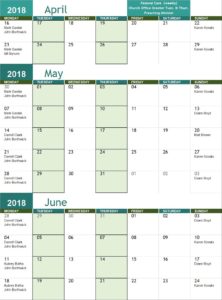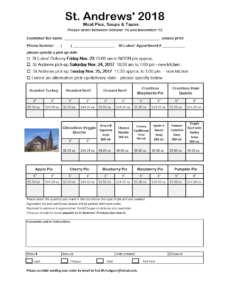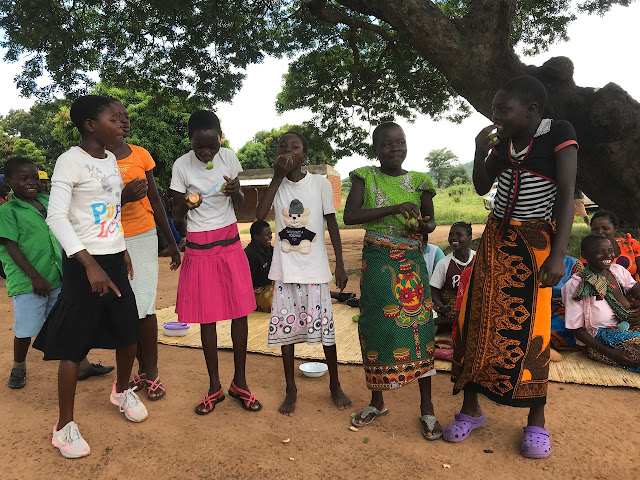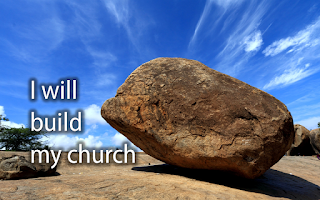Our Sunday School team was busy planting potatoes this past Sunday. Each year we plant potatoes and in the fall donate all of the harvest to Thursday Night Supper & Social. The Sunday School students were encouraged to take home seed potatoes to plant and grow through the summer. In the fall we will hold the Grand Gardener contest again to see who grew the largest potato (by weight).
Due to a situation I had no control over I have 3 fruit pies left from the recent delivery May 12, 2018
9" Apple Pie yummy!!!
9" Cherry Pie long-weekend for company?
9" Blueberry Pie now who doesn't like blueberry!
The regular price for the frozen pies is $14.00 best offer over $12.00 can take these scrumptious pies home.
Rob Hodgson
519-658-5237
Something to keep in mind for the fall
Continue reading »CYOB is back
St. Andrews Hespeler is delighted to announce
CYOB - Camp in Your Own Backyard is once again available. The dates of the 2018 program will run August 7 – 10
Cairn’s Camp in Your Own Backyard (CYOB) is a week-long vacation Bible school program that offers the opportunity to bring camp-style fun to churches and communities around our Synod.
This program is designed for children ages 5 to 13, but also provides an opportunity for older youth to help as young adult volunteers. There is no limit to the number of children who can participate, so long as there is an appropriate ratio of adult volunteers provided by the church to assist with the programming.
The curriculum is centered around a new theme every year and provides activities such as stories and lessons from the Bible, singing, games, music and drama, creations quest, arts and crafts, team-building initiatives, and “campfire” every day.
For more information, you can Call Jan @
St Andrews Hespeler 519-658-2652
Don’t wait the program fills fast!
At the Cairn Family of Camps, we don’t think it’s enough to just offer fun programming. We’re involved in camping because we believe that camp is an amazing life-changing experience. That’s why our mission is as follows:
To share God’s love through Christian camping and to ensure that its family of camps, and their leaders, provide supportive ministry and transformative programming. We believe in the extraordinary.
Message from Malawi
We just received this message from Malawi. Please keep Bill & Marg and Yvonne in your prayers while they are travelling in Malawi.
Hi we are having a great trip. Have toured northern Malawi visiting many PWS &D projects. It is warm with some periods of rain. Best Wishes Marg & Bill & Yvonne
I am on an intermission
I will be on an intermission that has been approved by the Presbytery of Waterloo-Wellington from April 16 to June 24, 2018. I am very grateful to be able to take this opportunity. Here are just a few notes I would like to leave with you.
- I will not be updating this blog during the intermission period.
- I will, however, be working on a personal project -- a podcast in which I retell Bible Stories. If you are interested in following this project, you will find all the information and links to each episode at this site: retellingthebible.wordpress.com/
- I will not be available to offer pastoral care or assistance during this time. Each week I have arranged to have two local Presbyterian ministers available to visit people or otherwise offer care. They will also be available in the event there is need of services (such as funerals and memorials). The names and contact information will change from week to week and will be posted in the bulletin each Sunday. Please call the church office if you need help connecting with someone. I am very thankful to these colleagues who have willingly stepped up to do this and to our team of Deacons who are regularly involved in pastoral care.
- Rev. Mark Gaskin is my Presbytery Liaison during this time. He will be available to the session and Clerk of Session to offer any assistance. If you have any questions or concerns to communicate to the session, you may do so through the Clerk of Session as usual. Thank you Mark!
- I have arranged for an excellent and highly recommended group of people to preach during this time and I am truly grateful to each of them. I hope you support them with your presence and enthusiasm.
- I appreciate the staff at St. Andrew’s and am thankful for all that they have done to pick up some of my usual tasks during this period. They are wonderful people!
- We thank Nancy English who is taking on leadership for the prayer chair during the intermission. If you would like a prayer request placed on our prayer chain please email Nancy at Prayerchain AT standrewshespeler DOT ca. You can also call the office and your message will be passed on.
- Above all, I am thankful for the extraordinary people of the congregation of St. Andrew’s Hespeler who I know will continue faithfully in the work that we believe our Lord Jesus Christ has given us to do in these days!
I will build my church
Hespeler, 15 April 2018 © Scott McAndless
Matthew 16:13-20, Matthew 7:24-27, 1 Corinthians 3:10-17
| I |
hope you all know by now that, after the Gala Dinner this evening, I will be starting a ten week period that is called an intermission in the Presbyterian Church in Canada. I will be away from the ministry of this congregation and of the larger church for that entire period. I decided to request this for a number of personal reasons – because I felt a great need to res t and refresh and to renew the passion that had nourished me over the past twenty-five years of ministry. So I certainly have a few personal goals that I want to work on, but, that is not necessarily what I wanted to focus on today.
I have been thinking a lot about what I wanted to preach about today, and I don’t really want to focus on me, but rather on the church. In particular, I want to ask how the church can grow and develop during a short season without a regular minister. I know what the natural tendency is, of course. I know that during a vacancy, for example, it is not uncommon for people to drift away from regular church attendance or for various activities of the church to pause or even languish. The problem seems to be that people assume that ministry is something that only the minister does and that if there is no minister for a period of time then there is no ministry. And I hope we can all prove over the next little while that that is a damnable lie from the devil.
It is maybe not too surprising that people think that way when you consider passages of scripture like the one that we read in the Gospel of Matthew this morning. In this passage, Jesus brings up the whole matter of building the church. He is not talking about setting up a church building, mind you, but is talking about establishing the church as a force in society – something that can have a real impact for good in changing times. In many ways, I believe he is talking about how you build a church for times such as the ones that we live in.
And Jesus seems to have some pretty clear ideas about how you build such a church. You build it on a rock, but not just any rock. Jesus wants to build his church on a very specific rock. This is what Jesus says, “Blessed are you, Simon son of Jonah! For flesh and blood has not revealed this to you, but my Father in heaven. And I tell you, you are Peter, and on this rock I will build my church.”
Now of course, it makes good sense, if you are going to build anything, that you should build upon a good foundation and building on a rock sounds like a good way to do that. But Christians, down through the ages, have disagreed about just what metaphorical rock Jesus is talking about in this passage. You have probably heard, for example, about the traditional Roman Catholic interpretation of this passage. It is based upon the nickname that Jesus gives to Simon. Jesus was apparently quite fond of giving people nicknames. We’re told that he called the disciple Thomas by the name Didymas which means “the twin,” no doubt because Thomas was the spitting image of someone. He called Mary Magdalene, which means “tower” and I sometimes like to think that he did it because he saw her as a strong protector who would watch over the movement that he had started.
Simon he called “Peter” which means rock – just plain rock. This nickname is not explained anywhere in the gospels (not even in this passage we read this morning, I would suggest) but you just have to think of the modern celebrity who also goes by the name of “The Rock” to get an idea of what the nickname might have been referring to. When you think of Dwayne Johnston what traits come to mind? Strong, certainly, stubborn, not someone you would want to get in a fight with and, how do I put this, not necessarily the smartest guy in the room, though you would never tell him that to his face! I like to think that it was those traits that led Jesus to call Simon by the name of Rock which was Keppa in Aramaic, the language Jesus spoke, or Petros in the Greek of the New Testament. We get the name Peter from the Greek.
But Roman Catholic theology has taken that nickname and made it the basis of its understanding of the church. They interpret this passage to mean that Jesus was promising to build the entire structure and the very being of the church on Simon Peter himself – that this one man alone would be the foundational rock of the church. Of course, Catholic tradition teaches that Simon Peter went on to become the Bishop of Rome and that is why they believe that Peter’s successor in that office, known today as the Pope, is the one man around whom their entire church is still structured to this very day.
Now, I don’t mean to offer any specific criticism of the Roman Catholic Church or its structures here. I may not agree with all of their teachings but I certainly respect the institution and many of the good works that the church does. My question is rather about what Jesus actually intended, not when you think about the structure but rather when you think about the day-to-day life of the church. We in the Protestant Church may not agree that the entire church should be structured around one man in Rome, but on a local level, I’ve got to ask, isn’t that exactly how we build our churches. In so many churches that I have seen, the weight of the church and its life and its work tends to fall on just a few individuals – they are the rocks upon which we build our churches.
Now I am not saying this as a way of complaining that all of that weight get loaded exclusively on the minister. That’s not what I mean. I know (and greatly appreciate the fact) that I am far from alone in doing the work of this church. But it is true in this congregation, as it is true in so many, that that weight does fall on relatively few. Our staff does carry a great deal of weight as do key volunteers. And I have to wonder, is that really how Jesus envisioned that it would be in the church. When we build the church on the foundation of a few rocks (if those rocks are people as one interpretation of this saying of Jesus would suggest) it is undeniably hard on those rocks and some of them crack and strain under the pressure. Some of those rocks break down, some of them step down before they really want to, some withdraw altogether. We’ve all seen it happen.
And one thing I particularly note is this, it is not necessarily the work of the church itself that tends to wear those rocks down. Most of the work of the church is actually a great joy. To teach the gospel message to children, that is a joy and honour. To visit the sick or struggling, that can be difficult but it is also very rewarding as is feeding the hungry, clothing the naked and preaching the word of life. Most people who contribute to the work of the church in a way that utilizes their own personal skills and strengths find that, in general, the work itself builds them up. No, the things that tend to make those rocks crumble are the other things: criticism of themselves or others, being taken for granted or not being appreciated for who they are, griping, complaining and general negativity. These things, from what I have seen, are what are most likely to wear down the rocks upon whom we build our church.
And I think that the reason why we do that – why we so easily turn the joy of ministry into the burden of dealing with all the negativity of the church is precisely because of this idea that we have that the church is built on the foundation of a few rocks that are people. When we think that they are the ones who are supposed to hold up the church, it becomes easy to focus any negative energy that arises upon them. (And negative energy always arises simply because we are human and things will never go perfectly).
And, no, I don’t think that that is how Jesus wanted to see any church that came out of the movement he had started behave. And it is that, more than any historical differences in interpretation between Protestants and Catholics, that makes me think that it is not correct to suggest that Jesus, in this passage, is trying to say that the entire church should be built in such as way as to depend on one person – even such an extraordinary person as Simon Peter. I believe that Jesus meant something else.
Now, I could try to make my point here by delving into the original language and grammar of the passage. I have read many a commentary on this passage arguing over the connection between the name Peter (which is Petros in Greek) and the Greek word for rock (which is petra). Some people argue that it is obvious that both words refer to the same thing while others argue that it is obvious that they do not. Of course, as you find in so many debates these days, the only thing that is truly obvious is that everyone can only see whatever supports what they have already decided to believe. I don’t think we can count on grammar to solve this one for us.
And so, instead of focussing on that one word, rock, let us look at what Jesus has to say about the purpose of the entire project. This is what Jesus has to say about the church that he wants to build: “the gates of Hades will not prevail against it.” That is a pretty audacious promise and it is one that is often misunderstood. You see, it is often understood to be a promise about the defense of the church. People assume that Jesus is talking about the church being under siege – that the powers of Hades (or Hell or evil or however exactly you want to understand that) are attacking us and the promise is that they will not prevail, they won’t win.
But actually that is not what Jesus is saying at all, because he talks about the gates of Hades. And when have you heard of gates attacking anybody? You haven’t because gates are defensive structures, not offensive. The role of the gates of Hades is not to attack but to defend against attack. So the picture of the church that Jesus is painting here is not the picture of a church defending itself against the attacks of evil but rather a church on the offensive.
And I think that this is a very important point because so much of what we do in the church seems to be defensive. We are fearful of the loss of status of the church, we are fearful of change. We feel as if the church is under attack in society and that is the source of a lot of the negativity that we feel. We are always trying to keep up appearances, to pretend that nothing has changed and when we do that we tend to pile more and more on the people who do the work of the church. But right here, right in this passage, Jesus has revealed to us that the church is not made to be on the defensive. We have been made the storm the gates of Hades – to take the evil of this world head on – and not to cower in fear. If we really believed that, how different would our attitude be and how much weight would it take off of the foundation rocks of our church?
In the end, I don’t believe that the church depends on any one person – not on Peter, not on me, not on you. If the church does not find its foundation in Christ himself and in the confession of Christ that Peter made, it will not succeed. (And, by the way, I think that was what Jesus was saying when he spoke about building his church on a rock.)
I realize that the next several weeks will create somewhat of a shakeup in the human leadership of this congregation. It may not all go smoothly; there may be some disruption. But I honestly believe that it can be a good thing because if that can show us where the true foundations are, maybe we can stop being defensive or afraid and get on with the work that Christ has given all of us to do.
Highlights of the April 15 service:
Gala Dinner Tonight
There is a Gala Dinner at 5pm in support of the Thursday Night Supper and Social tonight at St Andrew’s everything has been prepared. While we do not want anyone to take any risks to get there, if you can come, you will definitely be given a wonderful meal.
Continue reading »
Inter-mission 2018 (Rev. Scott McAndless)
Hello St. Andrews’
From April 16 to June 26, Rev. Scott will be observing his first Inter-mission. This leave, has been available since 1995 to Ministers that have five years of service in a church. Until recently this was not commonly observed by Ministers. As you know from news and first-hand, stress is a major trauma in any society, industry, organization and the church. You certainly know that churches around the world are in a period of rapid change. Session has endorsed this Inter-mission in concordance with the Presbyterian Church in helping Ministers cope with the pressures of ministry.
The April Session Meeting established a plan of action to enable the day-to-day function of the church remain attentive to the needs of all. A plan that attempts to have the who, what, when taken care of. The Church Office (Jan & Joni) will be focused on delivering their representative functions and need to have time to complete them. Please try to spare their precious time so they can deliver the best in the next 10 weeks.
The Church Office will continue to be open as before 9:00 am to Noon daily. The change will be that Tuesdays and Thursdays a volunteer greeter will be in place to take messages and arrange for answers to any questions. The greeters may not have the answers you need but will try to pass your request to someone who will get back to you. Your patience will be greatly appreciated. Phone calls to the office on Tuesday & Thursday will go the voice mail – your call will be returned at a future date.
Session is aware this change will cause some delays in responding to requests. In no way will the pastoral care ministry be affected by the inter-mission. Initiatives have been implemented to have a primary and backup Ministers available to meet emergency needs. By all means call one of the Ministers, the Church Office, the Clerk of Session or any Session Elder for help. We are committed to help our church family throughout the Inter-mission.
In delivering this plan we hope that the congregation will find a small change to the day-to-day operations. If you would like to volunteer for the greeter duties call Rob Hodgson @ 519-658-5237.
Shown below is the Intermission Calendar of Pastoral Care, Office Greeters and Scheduled Preachers for worship
 |
| click to enlarge |
Something for our children this summer!
We are excited to have the staff of Camp Cairn back this summer. This is a great week for our children. Everyone is welcome to participate: friends, neighbours, grandchildren. We will also need some adult helpers. If you can help out, please speak with Joni.










